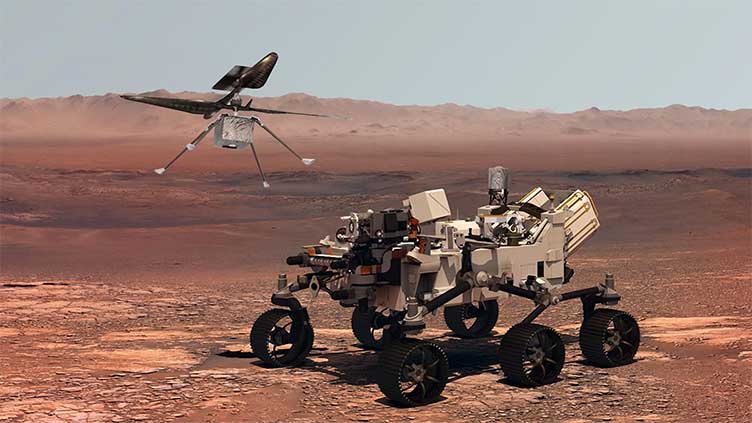Rover sent to Mars to hunt for alien life completes three years

Technology
The rover landed on Mars on February 19, 2021
(Web Desk) - The rover landed in the Jezero Crater – a region of Mars where the ancient environment may have been favourable for microbial life.
The Perseverance rover, which has been trundling on the surface of Mars, has completed three years on the alien planet that remains one of the biggest candidates for search of life.
The rover landed on Mars on February 19, 2021, after it left Earth on July 30, 2020.
The rover landed in the Jezero Crater – a region of Mars where the ancient environment may have been favourable for microbial life.
The SUV-size vehicle is probing the Martian rocks for evidence of past life and Jazero crater is the location of an ancient lake that once flowed on the Red Planet.
So far, the rover has collected 23 samples, surpassed 1,000 sols, and driven more than 24.8 kilometers on the rugged terrain of the Jazero crater. "There’s so much more to do – and I’m excited to keep exploring," the rover said in a post.
The rover, in its three years on Mars, has created a series of depots on the Red Planet, where it has dropped the sample cores safeguarded in titanium tubes.
These tubes will later be picked up by the sample returning mission being developed by Nasa and the European Space Agency.
Two science instruments mounted on the rover’s robotic arm are used to search for signs of past life and determine where to collect samples by analysing the chemical, mineral, physical, and organic characteristics of Martian rocks.
These samples will be the first set of rocks and soil to be brought to Earth from another planet for deeper analysis.
The six-wheeled geologist has been setting new records on Mars with the help of its computer pilot, AutoNav.
The rover drove through a maze of large rocks using the AutoNav software and did it in about a third of the time.


